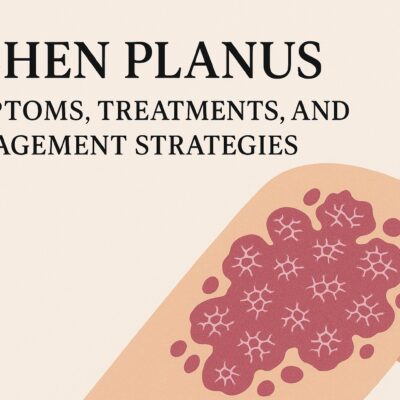Discover the transformative power of Enterostomal Therapy: Enhancing Quality of Life through Care and Support. Explore the role of ET nurses in empowering individuals with stomas.
Introduction
Enterostomal Therapy, also known as Stoma Care, plays a pivotal role in enhancing the quality of life for individuals who have undergone certain surgical procedures resulting in the creation of an ostomy. This specialized branch of healthcare focuses on the management and care of stomas, which are artificial openings created on the body for the elimination of bodily waste. Enterostomal Therapy professionals, commonly referred to as Enterostomal Therapy nurses or ET nurses, provide comprehensive care, education, and support to patients with stomas, empowering them to lead fulfilling lives despite their condition. In this article, we will delve into the world of Enterostomal Therapy, exploring its importance, the services provided by ET nurses, and the positive impact it has on the lives of individuals who have undergone ostomy surgery.
Enterostomal Therapy: Enhancing Quality of Life through Care and Support
Enterostomal Therapy is a specialized field of healthcare that focuses on improving the quality of life for individuals living with a stoma. By providing holistic care and support, ET nurses ensure that patients with stomas can effectively manage their condition and maintain optimal health. Let’s take a closer look at how Enterostomal Therapy enhances the quality of life for individuals with stomas.
1. Providing Physical Care for Stoma Management
Enterostomal Therapy nurses are trained professionals who possess expertise in the assessment, management, and care of stomas. They play a crucial role in providing physical care to individuals with stomas, which includes the following:
- Preoperative Counseling: Before surgery, ET nurses educate patients about the procedure, potential outcomes, and postoperative stoma care. This preoperative counseling helps alleviate anxiety and prepares patients for the journey ahead.
- Postoperative Care: After surgery, ET nurses guide patients in the immediate postoperative period, ensuring proper stoma function, and instructing them on essential stoma care techniques such as pouching and hygiene.
- Stoma Assessment: ET nurses regularly assess the condition of the stoma, looking for signs of infection, skin breakdown, or other complications. They provide guidance on managing common issues and offer solutions to alleviate discomfort.
- Appliance Selection and Education: ET nurses assist patients in selecting appropriate stoma appliances, considering factors such as stoma size, body contour, and individual preferences. They educate patients on the correct use of appliances, ensuring a proper fit and leak prevention.
2. Educating Patients and Caregivers
Education forms a crucial component of Enterostomal Therapy. ET nurses are responsible for providing comprehensive education to patients and their caregivers, empowering them to take an active role in stoma care. Here’s how education enhances the quality of life for individuals with stomas:
- Self-Management: Through education, ET nurses equip patients with the knowledge and skills necessary to independently manage their stoma and its associated challenges. Patients learn techniques for pouching, irrigation (in selected cases), and troubleshooting common issues, fostering self-reliance and confidence.
- Dietary Guidance: ET nurses offer guidance on nutrition and dietary modifications that may be necessary after ostomy surgery. They help patients navigate potential dietary restrictions, ensuring a balanced and nourishing diet while addressing concerns related to food and digestion.
- Psychosocial Support: Living with a stoma can have significant psychological and emotional impacts. ET nurses provide counseling and psychosocial support to patients, addressing concerns such as body image, self-esteem, and relationships. They facilitate peer support groups and connect patients with resources that promote emotional well-being.
- Caregiver Education: Enterostomal Therapy extends its support to caregivers as well. ET nurses educate caregivers on stoma care techniques, infection prevention, and emergency management
3. Assisting in Lifestyle Adaptation
Enterostomal Therapy goes beyond physical care and education; it also focuses on helping individuals adapt their lifestyle to effectively manage their stoma. Here are some ways in which ET nurses assist in lifestyle adaptation:
- Physical Activity: ET nurses work closely with patients to develop strategies for maintaining an active lifestyle. They provide guidance on exercises and activities that are safe and compatible with the individual’s condition, ensuring that they can enjoy physical activity without compromising stoma function or causing discomfort.
- Travel and Leisure: Having a stoma shouldn’t limit one’s ability to travel or engage in leisure activities. ET nurses offer practical advice on traveling with a stoma, including tips for packing supplies, managing changes in time zones, and accessing healthcare services while away from home. They also encourage individuals to participate in hobbies and leisure pursuits, emphasizing that a stoma doesn’t define one’s capabilities.
- Intimacy and Sexuality: Addressing concerns related to intimacy and sexuality is an important aspect of Enterostomal Therapy. ET nurses provide guidance on maintaining intimacy and sexual relationships after ostomy surgery, ensuring that individuals feel comfortable and supported in these aspects of their lives.
4. Continuity of Care and Support
Enterostomal Therapy nurses are a consistent source of support for individuals with stomas throughout their healthcare journey. They establish long-term relationships with patients, providing continuity of care and support. Here’s how this continuity positively impacts the quality of life:
- Ongoing Follow-up: ET nurses schedule regular follow-up appointments to monitor stoma health, address concerns, and provide ongoing education and support. This ensures that individuals receive continuous guidance, enabling them to adapt to changes in their condition and stay up-to-date with advancements in stoma care.
- Collaboration with Healthcare Team: ET nurses work collaboratively with other healthcare professionals involved in a patient’s care, such as surgeons, gastroenterologists, and wound care specialists. This interdisciplinary approach ensures a comprehensive and integrated approach to managing the individual’s overall health and well-being.
- Advocacy: Enterostomal Therapy nurses serve as advocates for their patients, ensuring that their unique needs and concerns are addressed within the healthcare system. They work to improve awareness, accessibility, and affordability of stoma care products and services, advocating for policies that enhance the quality of life for individuals with stomas.
FAQs (Frequently Asked Questions)
1. What conditions may require Enterostomal Therapy?
Enterostomal Therapy is commonly required for conditions such as colorectal cancer, inflammatory bowel disease (Crohn’s disease and ulcerative colitis), diverticulitis, and congenital abnormalities of the gastrointestinal tract.
2. How can Enterostomal Therapy enhance the quality of life for individuals with stomas?
Enterostomal Therapy enhances quality of life by providing physical care for stoma management, educating patients and caregivers, assisting in lifestyle adaptation, and ensuring continuity of care and support.
3. Is Enterostomal Therapy covered by insurance?
Many insurance plans cover Enterostomal Therapy services, including consultations with ET nurses, stoma supplies, and follow-up care. It’s recommended to check with your insurance provider to understand the specific coverage and reimbursement policies.
4. Are there support groups available for individuals with stomas?
Yes, there are numerous support groups and online communities where individuals with stomas can connect, share experiences, and receive support. Enterostomal Therapy nurses often facilitate these support groups and can provide information on local resources.
5. Can individuals with stomas lead a normal life?
Yes, individuals with stomas can lead fulfilling lives. With proper education, support, and self-management techniques, they can participate in various activities, maintain relationships, pursue careers, and enjoy hobbies and leisure pursuits. Enterostomal Therapy empowers individuals to adapt to their condition and live life to the fullest.
6. How often should individuals with stomas see an Enterostomal Therapy nurse?
The frequency of visits to an Enterostomal Therapy nurse may vary depending on the individual’s needs and circumstances. In general, it is recommended to have regular follow-up appointments to monitor stoma health and receive ongoing support. Your healthcare provider can guide you on the appropriate schedule for your specific situation.
Conclusion
Enterostomal Therapy, also known as Stoma Care, plays a vital role in enhancing the quality of life for individuals with stomas. Through comprehensive physical care, education, and support, Enterostomal Therapy nurses empower patients to effectively manage their condition and lead fulfilling lives. From preoperative counseling to postoperative care, lifestyle adaptation, and continuous follow-up, Enterostomal Therapy ensures that individuals with stomas receive the care and support they need throughout their healthcare journey. By addressing the physical, emotional, and psychosocial aspects of living with a stoma, Enterostomal Therapy significantly enhances the overall well-being of these individuals.
Enterostomal Therapy: Enhancing Quality of Life through Care and Support is not just a slogan; it is a reality for countless individuals who have undergone ostomy surgery. The specialized care provided by Enterostomal Therapy nurses brings about positive changes in the lives of patients, helping them regain confidence, independence, and a sense of normalcy. With ongoing advancements in stoma care and the unwavering dedication of Enterostomal Therapy professionals, the future looks brighter for individuals with stomas as they continue to enjoy an improved quality of life.






No Comment! Be the first one.